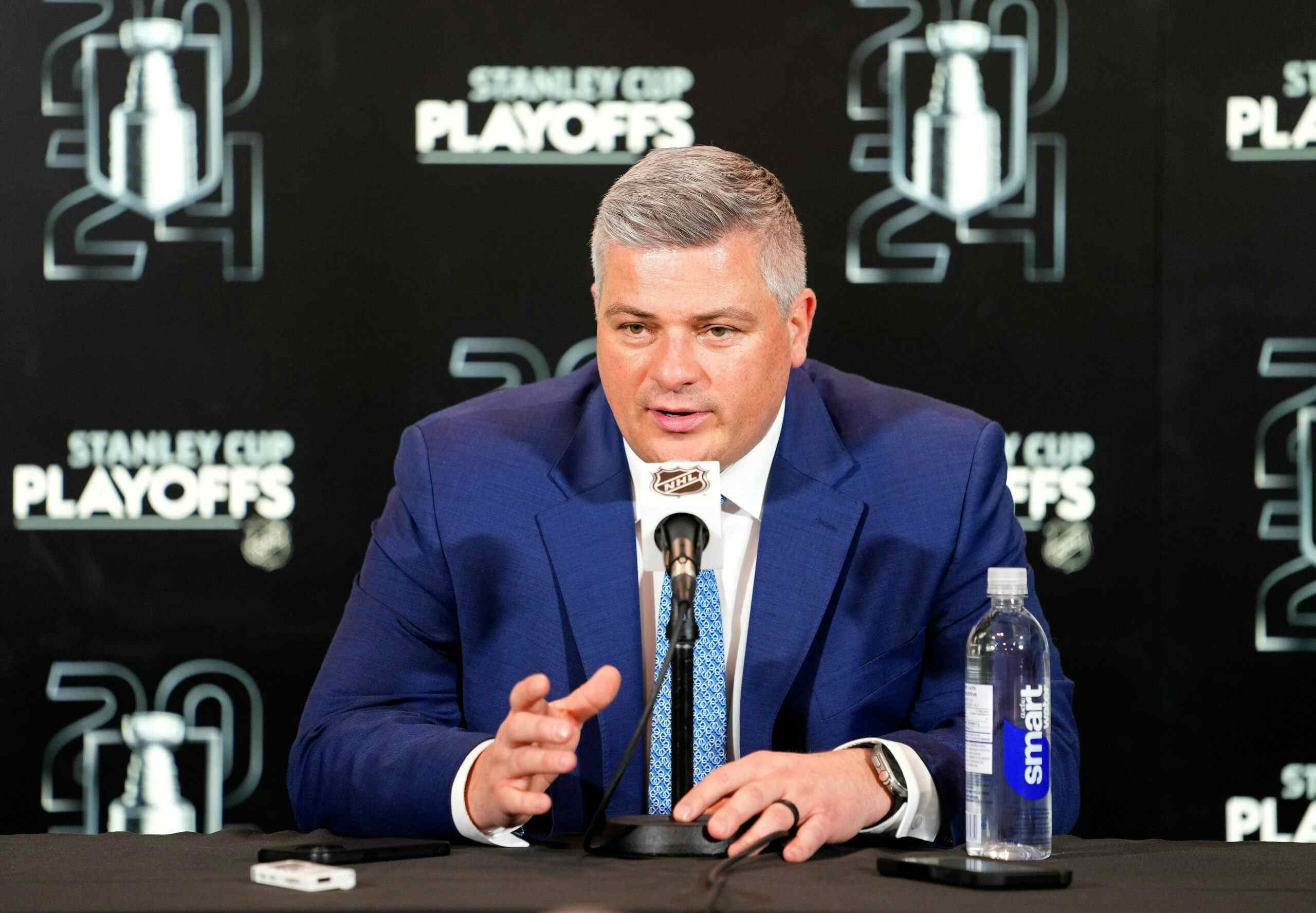The Scriv-interview, Part II: Ben Scrivens on the media
By Steve Dangle
11 years ago
It’s the offseason, and I was able to get a hold of Ben Scrivens for a lengthy interview, cut into three parts.The first part dealt with Scrivens’ 2012 season, while this second part deals with expectations and the power of media in shaping opinion about a hockey team.
One thing I remember you saying in a post-game scrum – because you kind of got to see this team at several different levels. I mean the first time you got called up they were doing pretty well, they were in a playoff spot, but at the end of the season when things fell apart, you said something along the lines of you could see or feel a difference in the Leafs’ locker room. What do you think was happening, or had already happened, to that team?
I don’t know. I mean, you look at any situation, and you could look at two polar opposite situations. You could look at what happened to the Leafs at the end of the season and juxtapose that with what happened to the LA Kings at the end of the season. Sometimes there’s no rhyme or reason for the way things play out, you know. Sometimes it’s one bad goal, a missed assignment, one post offensively, that causes you to lose a game, and that’s the first game of a losing streak that you can never quite pull yourself out of.
The same thing can go the other way. You get one big save, you get one big defensive effort on a 2-on-1 or 3-on-1, or you get a lucky goal off a shin pad instead of it going wide. You can look at it so many different ways. I think that’s what makes hockey so fun and exciting and such a great sport is that the game is so dynamic that to look at one facet of something and say ‘This is why this happened’ is kind of futile to try to boil something down to just one factor. If we’re talking about what happened to Toronto, it’s got to be everyone who was in that dressing room, myself included at the end, everyone’s got to take responsibility.
At some point during a losing streak, everyone’s been on them, sometimes it takes one guy to put forth a superhuman effort to steal the game and right the ship a little bit. Sometimes it just feels like the more you bail out the boat, the more water comes in. It almost seems like there’s nothing you can do. It’s pretty bleak at times. I think my observation was just that – if I’m remembering what I was talking about in that post game scrum – was that everybody was trying hard, everyone was almost trying to individually make those superhuman efforts to right the ship, as opposed to everyone pulling together in one direction.
But again, that was at the end of the streak. It’s not like I had an inside view in the middle of it or at the start of it. It could just be at the end guys were frustrated and they didn’t know what else to do in order to climb out of it. In the end though, you can’t look at it as anything other than a bunch of things that added up to a losing streak. Every team is going to have those. Every team is going to have winning streaks. Every team is going to have losing streaks. It’s just unfortunate for that team that the losing streak pulled them out of the playoffs race and they weren’t able to bounce back at the end of the season.
The silver lining of it is statistically that’s not going to happen again for a long time. The Leafs and everyone in Leafs Nation can look forward to however many X number of years before any losing streak like that happens again.

Related to next section: Marc Cuban calls out Skip Bayless
We’ve spoken a few times about the things people say about this team – whether it’s in the mainstream media, blogs, Twitter, etc. I know you’ve disagreed with a few things I’ve said, too. It never seems to be an angry response from you as much as you just think there’s a lack of understanding or an oversight in the thought process. What are some of the things you’ve seen or heard in your career that fit that description?
Oh – how long’s this interview? I mean, it’s one of those problems that you run into when people genuinely care about what they’re seeing, but they have a lack of control over the outcome. You can’t fault any of the fans, you can’t fault any of the media really – well, maybe the media at times because they’re getting paid to be a little more sure-sighted than what they are at times.
But again, at the same time, the fact that people care that much that they’re looking for anything that they can pull out of the data in order to find answers for what’s going on, or to find answers or changes that could maybe help the team even when they’re doing well. That’s what fandom is. It’s cheering for your team and trying to look at it as objectively as possible to try and help that team get even better.
The unfortunate thing that comes into play a lot of times is misinformation, overgeneralization, you know ‘If they only do this, if they did action X, then result Y is going to come.’ Again, getting back to my thought about hockey being so dynamic, it’s the same principle there. There’s no ‘this simple action is going to change this simple outcome.’
There’s a lot more things going on that you have to take into consideration. I remember specifically at times the media and the fans got on the penalty kill, but every penalty kill has four – well, five – different guys on the ice, not to mention you’re facing a team who’s just as dynamic with five players trying to score. To say ‘the penalty kill is hurting us’, that’s kind of a generic statement because there’s so many things that go into a penalty kill. Is it the penalty kill forecheck? Is it the neutral zone defence that they’re doing? Is it the in-zone coverage? Are they not aggressive enough? They’re not block? There’s so many things to look at on a penalty kill that can lead to offensive chances. The more offensive chances you give up, the more goals you’re going to give up.
To just with one brush say ‘Oh, the penalty kill!’ is kind of frustrating at times to hear that, but again, the guys in the room, every player in the league, they listen to the coaches and they listen to themselves. They’ve been playing hockey for so long that they don’t need Toronto newspaper X to tell them what they need to do in order to play better. Just speaking for myself, I know when I play a good game. I know when I play a bad game. I don’t need anyone else to tell me, so I generally don’t listen to what other people tell me.
Well then you’re doing great!
The other thing too, this is the advice my dad always gives me: You’re never as good as the media tells you, you are, but you’re also never as bad as the media tells you, you are. I’m going to take that last comment you said with a grain of salt.
Check for the third and final part of the Scriv-interview tomorrow where he talks about his personal habits and opinions on the current labour situation between the NHL and NHLPA.
Recent articles from Steve Dangle





